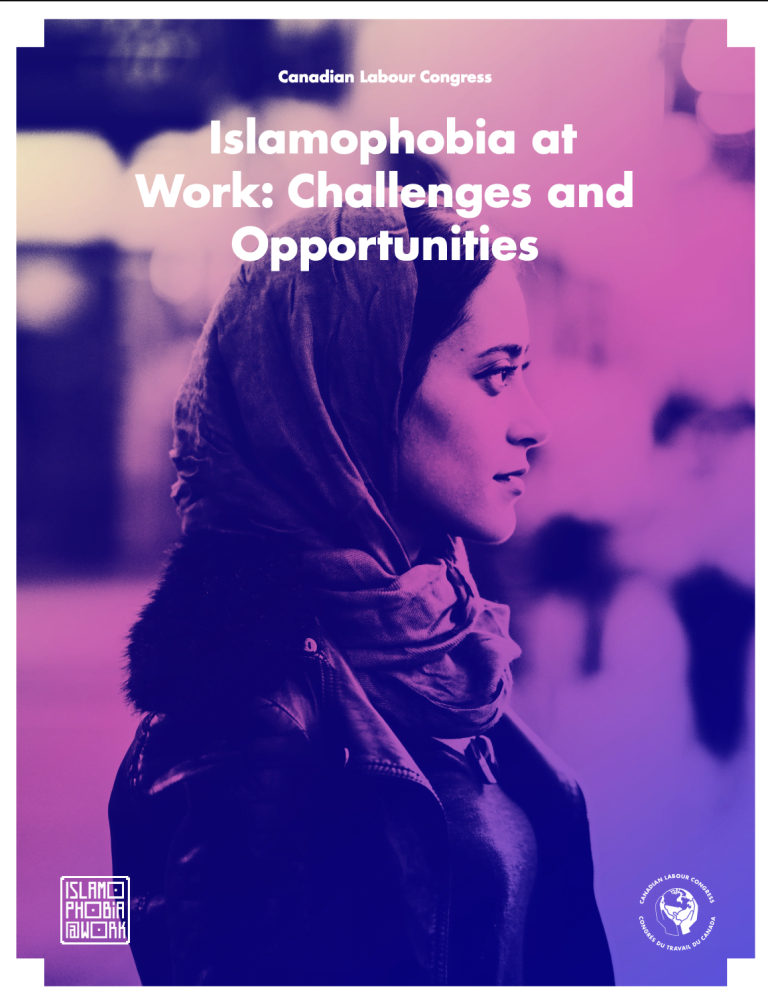3 search results
for
Women and gender diverse people
Recommendations to trade unions
Recommendation 10: Press all levels of government to adopt proactive pay equity legislation to eliminate wage disparities between men and Black women, Indigenous and Muslim women.-
Category and theme:
Audience:
Groups affected:
Recommendation 41:
Clothing and behaviour for Muslims must be modest according to Islam. Muslim men are required to wear loose and non-transparent clothing covering, at a minimum, from their navel to their knees. Some Muslim men wear a small head covering, called a kufi. Some Muslim women wear loose-fitting, non-revealing clothing as well as a hijab, or some a face veil. The employer and Muslim employee may want to discuss workplace dress code exemptions, if necessary
-
Category and theme:
Audience:
Groups affected:
Recommendation 43:
Some Muslims do not practice shaking hands with an unrelated person of the opposite sex as a sign of modesty and avoid any physical contact with members of the opposite gender;
-
Category and theme:
Audience:
Groups affected:
